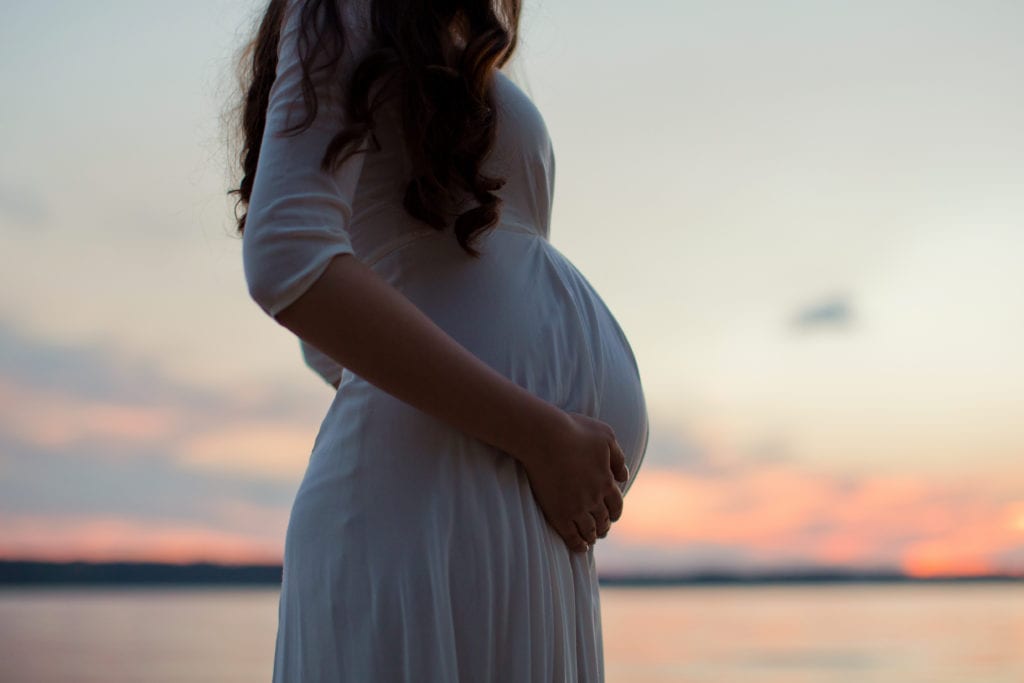You finally made it to the home stretch of your pregnancy. You’ve only got five weeks left – and there’s a lot to be excited about.
Your changing life
As you reach the end of your pregnancy, you may notice that on top of your excitement, fear is starting to set in. Being nervous about labor, delivery and bringing your little babe home is normal and every woman goes through it, so there’s no reason to think you’re being dramatic.
Your weekly doctor appointments likely include a pelvic exam at this time. Your doctor or midwife has to determine if your cervix has started to dilate and if your mucus plug is close to falling out. The bloody show associated with the mucus plug means that you’ll soon be heading to the hospital and leaving with a baby.
Chances are you’re probably getting up every hour to go to the restroom – even through the night. Since your baby is likely positioned with his or her head down at this point, you’ve got a lot of pressure pushing on your bladder that can cause you to find yourself using the restroom often or even peeing your pants a little. If this is the case, you may want to invest in some pads to eliminate frequent underwear changes.
Fatigue is really starting to set in. Although you’ve made it through 35 weeks of pregnancy, these last few will really take a toll on you physically. You’re carrying a lot of extra weight around which means that it’s taking more energy for your body to keep going throughout the day, not to mention you’ve got a nearly six-pound baby in your belly.
Your baby this week
You may feel exceptionally large at this point in your pregnancy, but that’s because by week 35 your baby is at a whopping 5.5 pounds and nearly 20 inches long. Your little one won’t grow much more between now and delivery.
Your baby’s skull is still soft so that he or she can squeeze through your birth canal a little easier. You definitely don’t want to attempt to give birth to a child with a skull that has already hardened. But don’t worry, the skull will begin to harden in the weeks and months following birth.
Fat layers are continuing to grow on your bundle of joy and his or her birth weight will be about 30 percent body fat. Once he or she makes her debut, it’ll be harder for her to stay warm, so the fat must grow to ensure he or she doesn’t freeze outside of your womb. He or she is also developing sleeping patterns in your belly and you’ll likely notice when he or she falls asleep and wakes up from his or her naps.
Preparing for the big day
Interested in finding a doula? Do you know where to begin? A doula is a non-medical professional who will accompany you during labor to provide much-needed support and guidance. A birth doula will be able to help you with pushing and breathing techniques to make the process a little easier on you. She’ll also go over your pain relief options to help you find the one you’re most comfortable with. Your doula may also go over birthing positions that can make the experience more comfortable for you.
Now is also a good time to pack your hospital bag. Bring along some loose fitting clothes so that you can feel more comfortable, especially if you don’t want to wear a hospital gown during your stay. If you know that you’ll be having a C-section, it may be best to find a robe or gown that is loose and doesn’t put too much pressure on your abdomen, because it’s going to be really sore. Don’t forget to pack baby’s bag – although you really don’t need much. Bring along a “going home” outfit and socks; the hospital will provide you with diapers, a hat, swaddling blankets, wipes and onesies while you’re there.
If you haven’t already done so, now is the time to purchase all of the items remaining on your list of baby equipment. The crib is probably already put together and made up for baby thanks to your never-ending nesting, but you’ll need to make sure the car seat is installed and ready to go, baby’s clothes are put away and her room is awaiting her arrival.
Your doctor will probably do a test for Group B strep at your next appointment if it hasn’t already been done. Group B streptococcus is a natural bacterium that’s found in your throat, bowel, bladder and vagina. The bacteria can colonize in mucous membranes. If you test positive, you’ll be given a course of antibiotics through your IV so that you don’t get an infection or pass it to your child.
